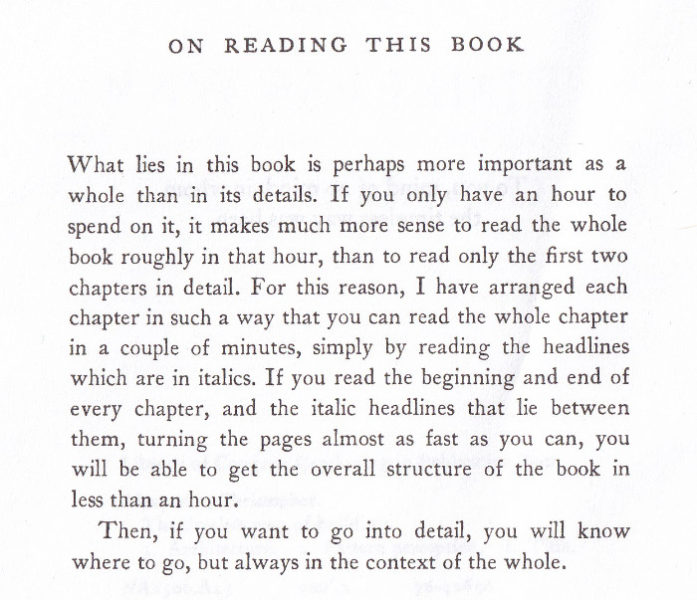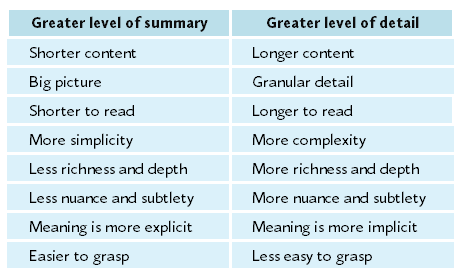Examples of multi-level content – Part 2
Many ‘how to’ books (and many non-fiction books in general) are written on the basis that the book exists as a whole and so needs to be read as a whole.
While authors may often throw in summaries, they are rarely treated as a critical part of the book.
 Andrew Abela, the author of Advanced Presentations by Design: Creating Communication that Drives Action (Pfeiffer, 2008), has taken a different approach.
Andrew Abela, the author of Advanced Presentations by Design: Creating Communication that Drives Action (Pfeiffer, 2008), has taken a different approach.
He has a clear understanding that different groups of readers have different needs. So while some readers may have the luxury of having a few weeks before needing to give their presentation, others have much more imminent deadlines.
As a result, he has created content relevant to three different groups.
1. For readers who have an upcoming presentation soon (eg. the next day), he suggests the following: “read the first page of each chapter—nine pages in all—and this will give you a sufficient overview of the whole method”.
2. For readers who have to deliver a presentation in the next few hours, he provides an even quicker approach: “jump ahead to Figure C.1 in the Conclusion to this book, which contains ten quick questions that will help you decide whether your presentation is going to be effective or not, and if not, where you should focus your efforts to fix it”.
3. For readers who have more time, Abela suggests either following the step-by-step process outlined in the book or focusing on individual areas where they have the most room for improvement.
Those who read the whole book might also find the three-part content structure useful.
The chapter summaries could be started either before a full read to provide an overall framework of meaning; or afterwards to provide a recap of the main points.
In addition, the ten quick questions could be used as a final checklist once the presentation has been created.
Andrew Abela’s approach is not necessarily relevant to all authors of ‘how to’ books. For example, readers may need to be given significant prior knowledge before implementable strategies become useful. However, it’s an approach that should at least be considered.




